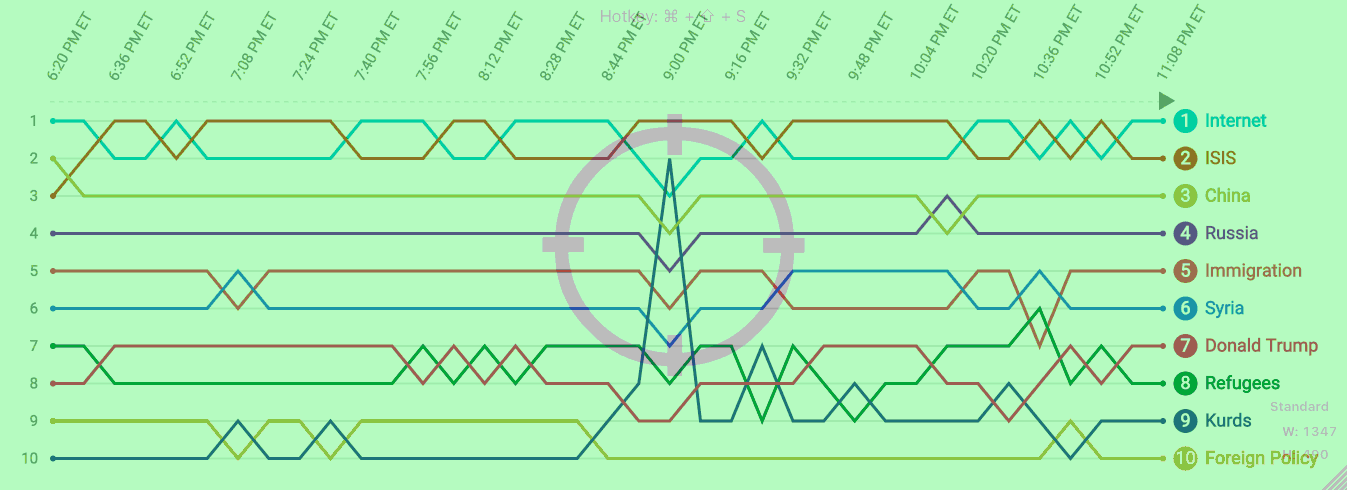The above exchange, edited together by MSNBC, might represent signs of life for the flagging campaign of former Florida Gov. Jeb Bush. The early front-runner with the $100 million war chest saw his poll numbers peak in early July, but they’ve been declining ever since. A big reason for that has been withering attacks of Donald Trump, who has successfully branded Bush as “low energy” and too nice to make the tough decisions necessary to run the country.
So during Tuesday night’s debate, Bush’s successful parry of Trump’s attacks got a lot of attention. When Bush told Trump that he wouldn’t be able to “insult your way to the presidency, that’s not going to happen,” it was the debate’s top moment on Facebook, according to the Hill.
Social-media engagement and internet trends might not tell us who’s going to win the nomination, but they do offer some insights into who’s succeeding in getting the attention of voters. The Google Trends team put together a series of graphics showing how Google search terms trended before, during, and after the debate. If that’s any indication, Trump had the best night, with Sens. Ted Cruz and Marco Rubio following.
First, take a look at the most searched candidate leading up to the debate:
That might not be too surprising given all the media attention Trump gets, but polls have shown that media attention tends to coincide with Republican base support. When people search for Trump on Google, here’s what they’re asking:
The data also shows what issues people are searching for related to Trump. Take a look:
During the debate, Google tracked real-time search data. ISIS and the internet—the latter due to increased talk about encryption and law enforcement access to data, as well as Trump’s proposal to shut down parts of the internet to thwart terrorists—led the way. But you can see that China, Russia, immigration, Trump, and the Kurds were on people’s minds during the debate. This graphic charts interest in those topics from 6:20 p.m. ET, during the undercard debate, to the end of the main debate, just after 11 p.m. ET. Take a look:

The morning after the debate, Trump still dominated Google search traffic, with more searches than the rest of the field combined. Cruz and Rubio followed. Here’s the pattern from early morning December 16:
When people are searching specific issues on Cruz, they’re searching for his stance on gun control, immigration, ISIS, abortion, and Muslims. But as far as specific questions, here’s what people were asking about the senator from Texas in the week leading up to Tuesday’s debate:
And here are the top questions asked about Rubio for that same time frame:
People are also searching for information on Ben Carson, another outsider candidate who had surged in the polls but has seen a drop in support after the terrorist attacks in Paris. The top trending questions on Carson in the week before the debate don’t necessarily reflect well on the retired neurosurgeon:
And let’s not forget CNN’s Wolf Blitzer, the main moderator of last night’s debate. People were Googling questions about him, too:
















